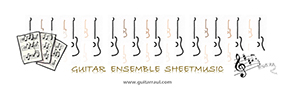This paper addresses itself to the gradual disappearance of improvisation from Western art music during the latter half of the nineteenth and early twentieth centuries. It confronts the puzzling fact that improvisatory performance has ceased to interest a majority of conservatory-trained musicians, despite the fact that performers of European art music in previous centuries exhibited considerable interest in improvisation, and continued to consider it an important musical skill until at least 1840. Related analysis provides a number of explanations for the reasons why improvisation has tended to disappear in terms of social change in the nineteenth century, and the ways in which such change has affected how art music is taught and heard today. The paper concludes with speculation about the implications of the recent disappearance of improvisation from art music, and suggests how it might once again be reincorporated into musical performance.
By Robin Moore
the decline of improvisation in western art music





